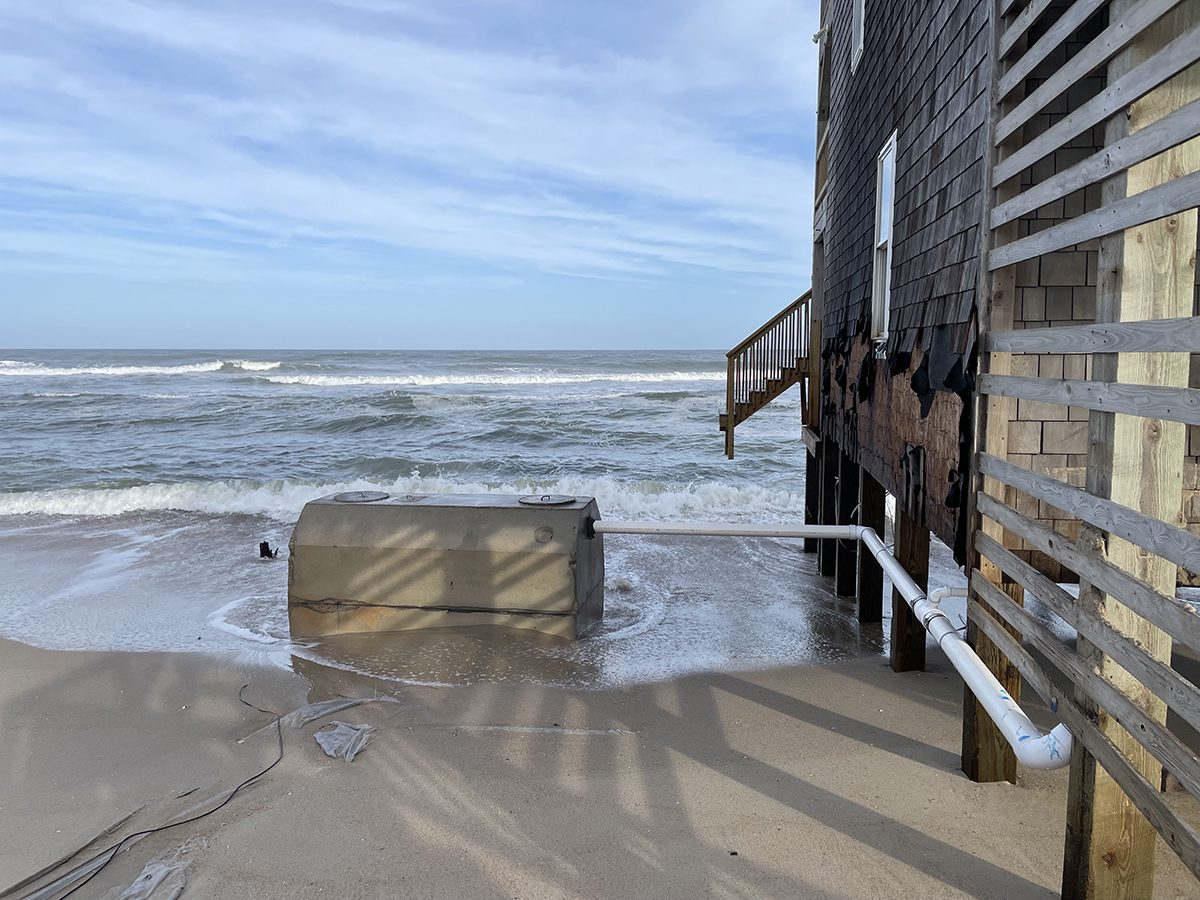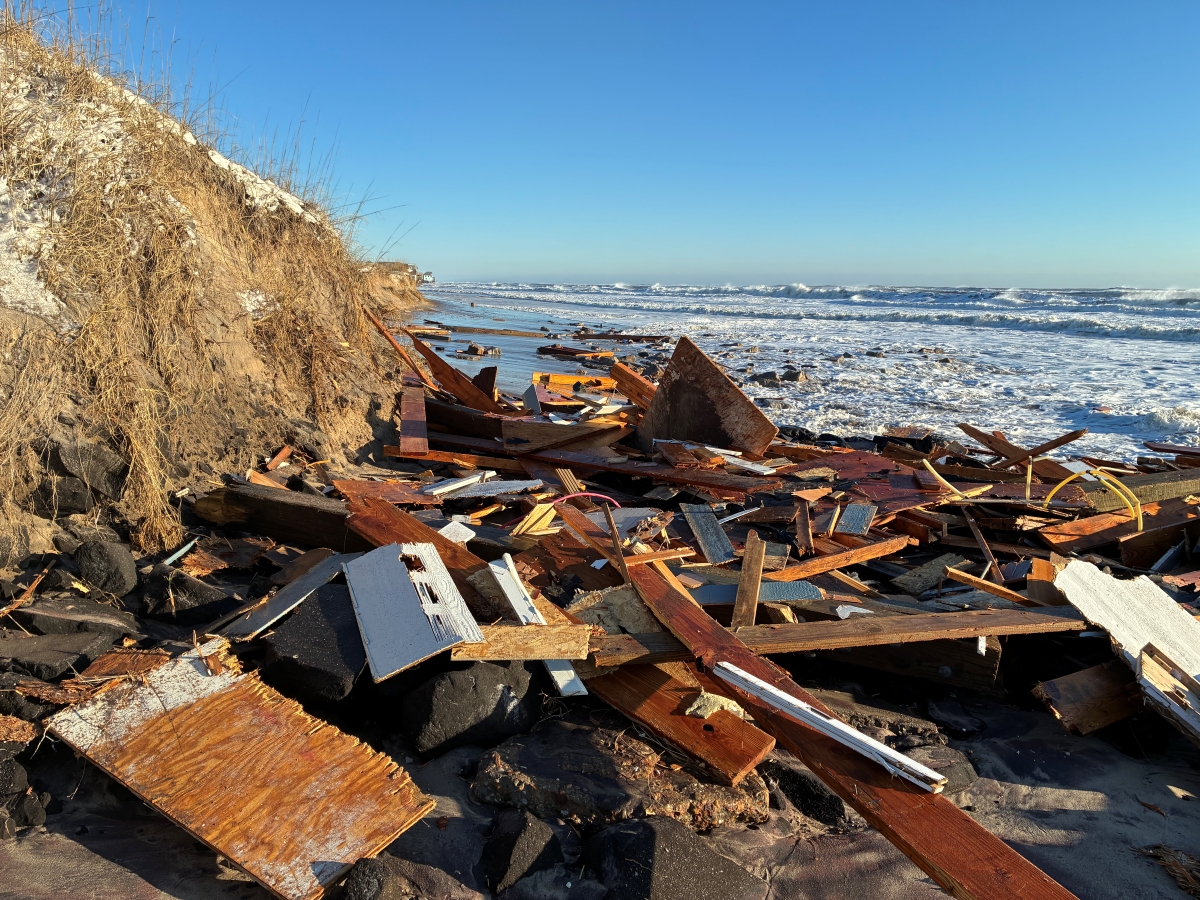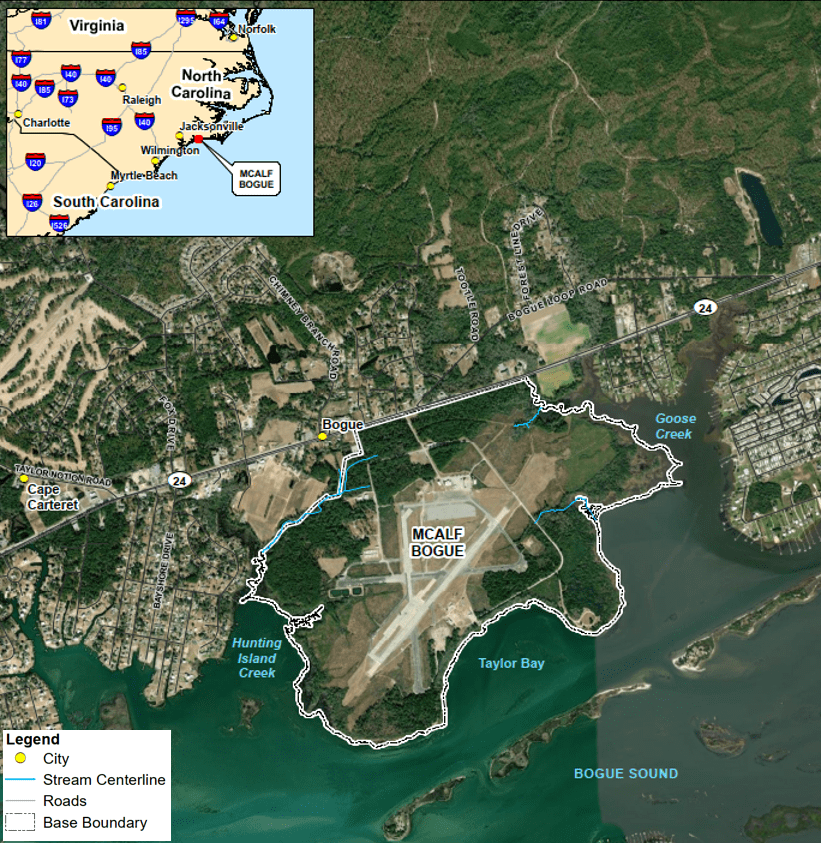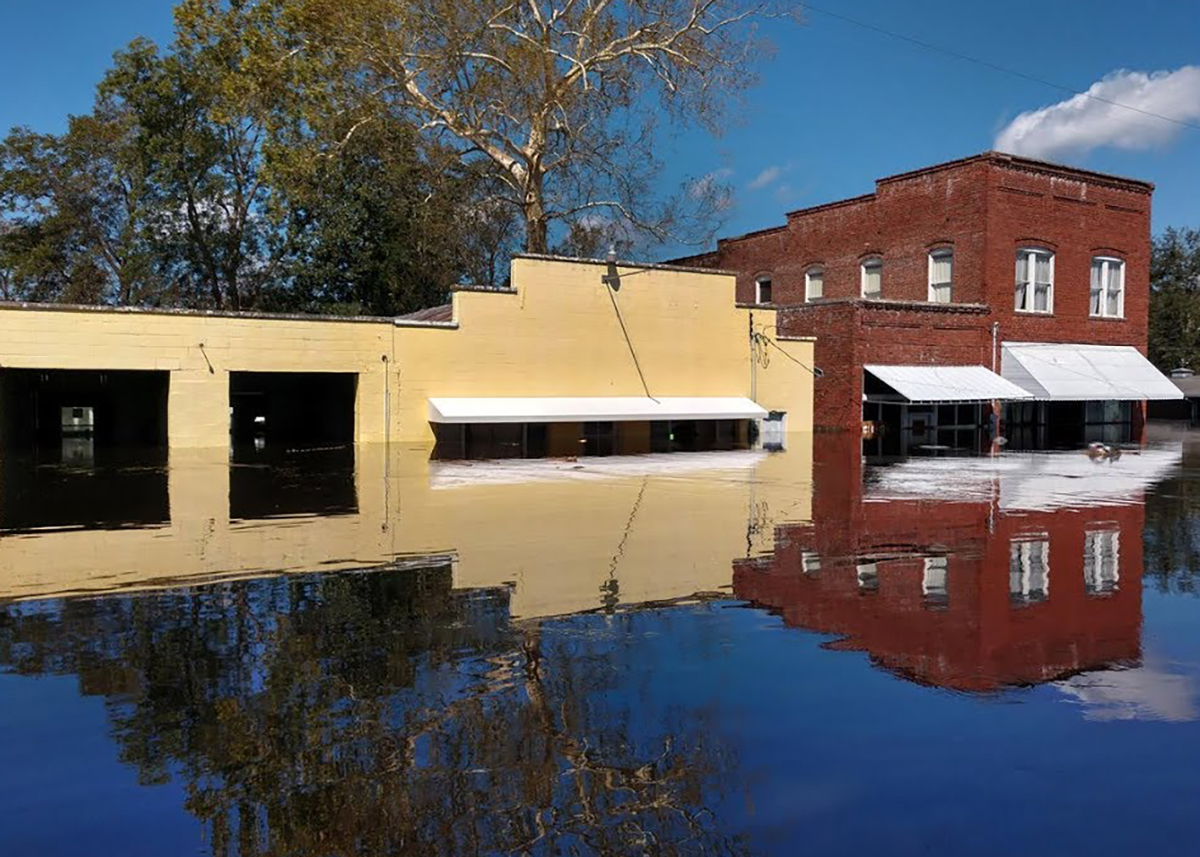
MANTEO – Advocates say would-be homebuyers and current oceanfront property owners in North Carolina have long needed clearer rules and updated information as climate change increases the risks of damage and flooding.
Two unrelated, but long-sought actions taken last week by the North Carolina Coastal Resources Commission seek to clarify two persistent issues: septic systems on the public beach, and residential flooding.
Supporter Spotlight
With two dozen or so septic tanks and their various parts scattered on the beaches of Cape Hatteras National Seashore last year after the collapse of three large beach houses into the ocean in the village of Rodanthe, gaps in regulations and enforcement became glaringly self-evident. Concerns also were renewed that some owners of the damaged or destroyed properties seemed to be uninformed about the risk of beach erosion, storm tides and flood damage.
The commission, which met Thursday in Manteo, voted unanimously to approve an amended septic rule. Although the changes did not address all the complexities of ocean shoreline septic issues, they specify what is allowed in repairing or moving septic systems on an eroding ocean beach, and are the first update since the recent spate of beach house collapses.
According to the updated rule, if a septic system on the oceanfront is battered by storm tide, repairs can be done in place without a permit. Otherwise, the replacement or relocation of any septic system seaward of the vegetation line needs a permit.
“The idea here is we’re trying to get them off the public beach,” Division of Coastal Management Deputy Director Mike Lopazanski said during a presentation at the Coastal Resources Advisory Committee meeting Wednesday in Manteo. The panel advises the commission on local government matters.
Ocean beaches from the foreshore to the low-tide line are in the public trust in North Carolina. That part of the beach within the Cape Hatteras National Seashore is also public land, National Park Service property. The relevant state statute defines the public trust beach as the wet sand area that “is subject to regular flooding by tides and the dry sand area of the beach that is subject to occasional flooding by tides, including wind tides other than those resulting from a hurricane or tropical storm.”
Supporter Spotlight
Lopazanski said the amended septic rule also directs the Division of Coastal Management to make allowances for areas impacted by hurricanes and tropical storms, where septic systems may be damaged by overwash or burial of the vegetation line. The systems, which the general statute defines as the septic tank, the pump tank and the ground absorption field, can still be repaired or relocated to restore their function and avoid impacts to the public trust beach, he said.
In decisions to repair or relocate, components are considered separate structures. If they cannot be repaired in place, they would be subject to erosion-rate-based setbacks that apply to other oceanfront structures. Septic systems will not be permitted separately when an owner seeks a permit to build in a coastal zone.
Also, National Flood Insurance Program staff clarified that public funds are not available for moving septic systems, Lopazanski said. Flood insurance payouts are not considered public funds.
A public hearing on the amended rule is expected to be held in early fall.
Flood history disclosure
After another presentation by Department of Environmental Quality Assistant General Counsel Christine A. Goebel about a petition for rulemaking with the N.C. Real Estate Commission that is proposing to add information about a property’s flood history and flood risk to the real estate disclosure form, the commission agreed to send a letter in support of the changes to the Real Estate Commission.
Outer Banks Association of Realtors Government Affairs Director Donna Creef said that the Outer Banks agents were concerned about access to flood information, some of which may be available only to engineers. Flood history also may not be available to a broker, or be limited by privacy strictures. She noted that buyers should be advised of the value of having a flood insurance policy, no matter the requirement in the designated flood zone.
Coastal Resources Advisory Committee member Spencer Rogers, a coastal erosion specialist who retired last year after 40 years with N.C. Sea Grant, recommended including the beach erosion rate in disclosures. He suggested including information about a provision in state law that requires a builder to move a property that is imminently threatened for a period of eight years. The threat could be mitigated by beach protections such as sandbags or beach nourishment. Rogers said that to his knowledge, the requirement had never been applied.
The commission agreed to add the additional information to the letter of support for the disclosure requirement changes.
The rulemaking petition was filed in January by the Southern Environmental Law Center on behalf of five nonprofit organizations and asks the Real Estate Commission to update the disclosure form with five additional questions that would require a seller or the seller’s agent to disclose the flood information.
As it’s now written, the Real Estate Commission’s disclosure statement — the sole required disclosure document by sellers to prospective buyers — does not include information about flooding.
“The current Disclosure Statement does not solicit adequate information related to a property’s flood history and flood risk,” the proposed rule amendment said. “A home that has flooded once is likely to flood again. Providing homebuyers with information about the potential flood risk that comes with a home will enable buyers to take appropriate steps to mitigate damages, including by purchasing flood insurance.”
According to the petition, North Carolina experienced 4,382 flooding events between 1996 and 2021, resulting in 72 deaths and nearly $1.7 billion in property and crop damage.
“Many North Carolina counties have experienced increased catastrophic flooding in recent years, with some experiencing multiple major flooding disasters,” according to the document. “Since 1977, North Carolina has seen 29 major federal disasters declared for events that caused major flood damage in one or more counties.”
In her presentation, Goebel said that a study in 2021, “North Carolina Coastal Hazards Disclosures in Real Estate Transactions,” by then-third-year University of North Carolina law student Anderson Tran, recommended that North Carolina build on the disclosure form used by Texas, which was called one of the best in the country.
The proposed rule changes were published in the March 15 North Carolina Register. Comments will be accepted through May 15, and the proposed effective date is July 1.







